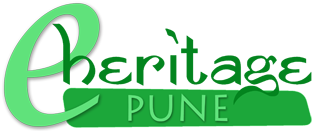The Deccan College in Pune is the third oldest educational institute in the country. It started as a part of the Dakshina Fund started by a Maratha Sardar Khanderao Dabhade. It was continued by the Peshwas for the promotion of Sanskrit. The Fund was given the status of an institution named as the Hindoo College on 6th October 1821 by Mountstuart Elphinstone, the then Governor General of the Bombay Presidency. It was originally run in the Vishrambagwada. In 1842 an English School was added to the Hindoo College and in 1851 the English School was merged with the Hindoo College to form the Poona College. It was then shifted to Wanowri and later on to the present campus near Yerawada. The land of the campus was donated by the Bombay Government and the Foundation stone of the main building was laid on 15th October 1864 with a new name given to it as the Deccan College. Since then, over a period of time, the institute received the fame of being the foremost centre in the world of higher learning and research. Many renowned scholars of the last century were the products of this institute. The list includes Sir R.G. Bhandarkar, Lokamanya Bal Gangadhar Tilak, Gurudev R.D. Ranade, V.K.Rajwade, etc . The college was closed down by the British Government in 1934 but was opened again on 17th August 1939 with the efforts of the past students. It then became the Deccan College Post Graduate and Research Institute which was to cater studies in heritage related subjects. Since then the Institute carried out outstanding research in Ancient Indian History, Culture and Archaeology, Linguistics, Medieval and Maratha History, Sociology-Anthropology and Sanskrit Studies. Eminent scholars Professors of the Deccan College, Post-Graduate and Research Institute such as the late S.M. Katre, H.D. Sankalia, Irawati Karve, C.R. Sankaran and T.S. Shejwalkar, and their colleagues and successors such as Professors A.M. Ghatage and S.B. Deo , Shobhana Gokhale, M.S.Mate, M.K.Dhavalikar, G.B. Deglurkar, K.Paddayya as well as the students enrolled from various parts of the country made excellent research contributions. The institute is also noteworthy for a gigantic project of the preparation of an Encyclopaedic Dictionary of Sanskrit on Historical Principals. All such activities of the institute won it a deserving status of a Deemed University on 5th March 1990 and started functioning as the same from 1st June 1994. The institute started its own courses of M.A. degree in Archaeology, Lingustics and the recently started Sanskrit & Lexicography, and the P.G.Diploma in Archaeology along with the Ph.D. students in Archaeology, Linguistics Sanskrit and other related subjects. The Department of Archaeology of this institute is famous all over the world for the investigations carried out in various parts of the country and is considered as the best in the Asian sub continent for theoretical and field archaeology. This is the only university department of Archaeology in the entire country, which has elaborate laboratories for archaeological chemistry, palynology, archaeo-zoology, archaeo-botany, biological anthropology, sedimentology, palaeontology, physical chemistry, X-Ray diffraction and computing. These laboratories carry out scientific analysis of archaeological remains recovered from various excavations. Their services are extended to other institutions and university departments in the country including the Archaeological Survey of India and State Departments of Archaeology. The institute has two museums namely the Museum of Archaeology and the Maratha History Museum displaying the different cultural phases as seen through the activities of the department. The library of this institute is considered as one of the best libraries in the city with a collection of over one lakh books and 150 Indian and foreign journals along with a very strong manuscript collection. (The institute is open on all working days except 1st and 3rd Saturdays, Sundays and all public holidays. The timings are 10.30 am to 5.30 pm. The website of this institute is – http://www.deccancollegepune.ac.in/)
